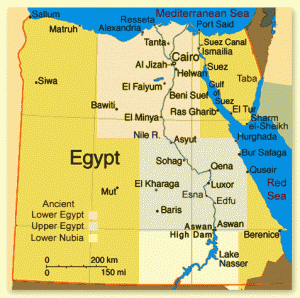(ThyBlackMan.com) I am far from an expert on African history and politics. Nevertheless a few things seem obvious while following the popular uprisings in Cote D’Ivoire, Egypt and Tunisia.
One: revolutions are inevitable.
Two: No matter how many revolutions occur, African nations will never be totally autonomous.
Revolutions are necessary. They allow for a new wave of leadership to come into power. We typically think of revolutions as violent and as causing upheaval but this is not necessarily so. In our own democratic nation the United States a revolution, through the change in the presidency, has the potential to occur every four years and by law must occur every eight years at the most. Furthermore our Congressional system of government enables a change in the controlling party every two years. Revolutions are inevitable.
In non-democratic or pseudo-democratic states revolutions are all the more inevitable. Because of the common belief in democracy any country not  allowing a true voice to its citizenry is bound to run into trouble from the population. And on the African continent there are far too many countries in which the majority of the people have little to no effect on the decision making process.
allowing a true voice to its citizenry is bound to run into trouble from the population. And on the African continent there are far too many countries in which the majority of the people have little to no effect on the decision making process.
Whether there is an outright dictatorship or some pseudo-democracy, a revolution only occurs when those in the oppressed group engender enough support and enough weaponry to overthrow the group in power. Essentially revolutions happen not when and because people are upset, instead revolutions happen when and because people who are upset have powerful friends. This reality continually brings western Europe and the United States into African politics. Having such powerful outside forces with a voice in a country’s sovereignty is a recipe for disaster.
Related to the issue of interference in African affairs is that Western European countries and the United States have to much interest in the natural resources of African continent. This reality means that they are always willing to fill the role of revolution fomenter.
This is the tragedy of African politics. Those who are decision makers are never in power on their own merits alone; they always had help in getting to that position. Consequently they have outside interests to satisfy. In addition to replace those in power takes powerful friends who will want the same considerations given to them once the revolution is complete.
Revolutions in Africa often give the appearance of change. But the direction of the country and the philosophy of the decision makers do not change. The script is the same but with a different set of actors.
Right now we are watching Tunisia, Cote D’Ivoire, and Egypt undergo revolutions. But once France (in Tunisia) and the United States (in Cote D’Ivoire and Egypt) have pushed their puppets around for a while, and the populous has gotten tired of the puppets, another revolution will follow.
It is inevitable.
Written By Trevor Brookins

















Leave a Reply